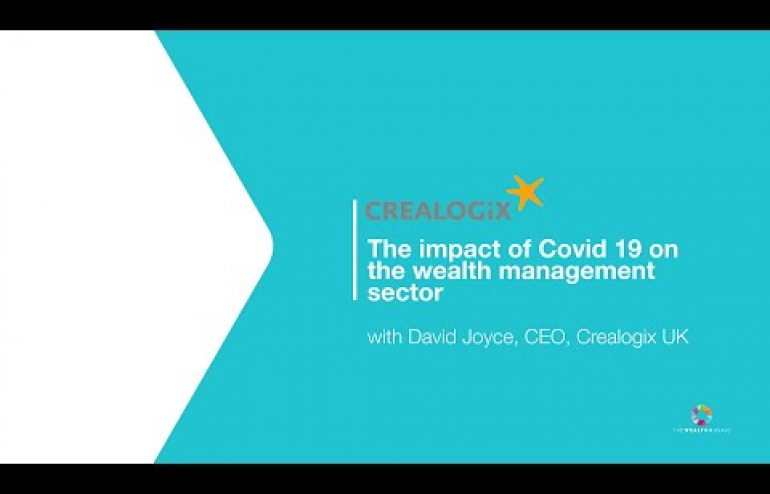
CREALOGIX UK CEO David Joyce considers the impact on wealth management firms of the pandemic and subsequent lockdowns.
They say necessity is the mother of invention. This last year has seen wealth management firms completely rethink their approach to digital wealth tools because they became an essential aspect of service provision.
Are wealth management firms moving faster?
The effect of lockdown hasn’t just been about bringing the deadline forward on digital transformation projects, it has amplified the need for them. At a time when uncertainty has led to volatile markets at some points and client circumstances and requirements changing suddenly, client communication has never been more important.
Many of the personal challenges people have faced this last year would have been well served by an in-person meeting, but in the absence of that option, wealth managers have been turning to digital tools to deliver the same secure, premium service.
What has lockdown meant for client service?
As firms innovate and continue to work hard to focus on client requirements, there is a growing understanding within the industry that digital wealth tools aren’t simply an optional add-on. Digital implementations are being considered on a greater scale and with more in-depth applications.
Some of the necessary changes during lockdown may become lasting if clients discover they can achieve the same goals without having to visit an office. The long-term effect on client service is likely to be a significant improvement in client service from a digital service that complements in-person services and improves client convenience and engagement.
Do digital wealth tools create a distance between investors and relationship managers?
This has long been the assumption of the industry, but wealth managers have discovered that the opposite may be true. Well-placed digital intervention can actually lead to closer relationships because some of the obstacles – such as burdensome administration – have been removed.
Does a digital service mean reduced costs?
The acceleration of digital wealth tools during the pandemic has meant many firms have now grasped the scale and scope of potential cost-savings due to digitalisation. Firms that previously thought it was unimaginable to ditch paper reports and processes have discovered that it was not as disruptive as previously imagined and that the switch has delivered a tangible, recurring cost saving to the firm.
What’s inspiring about this change, however, is that wealth managers have not been primarily focussed on cost-savings, but on the delivery of client service. Improved client service has been the real stand-out of the increase in digital wealth services from traditional firms – from that perspective the cost reductions are simply a very positive added bonus.
What next for digital wealth tools?
Now that wealth management firms have grasped the cost benefits and service improvements made possible by digital wealth services, the next step is to align those tools as closely with the firm’s brand and objectives. A more conversational approach to digital interactions, guiding investors through clients, reports and tasks, is likely to be the next step.
We know the human touch is an important element of wealth management services. Ensuring that wealth managers not only have more time to interact with investors at their convenience, but also that the same personal approach and attention to detail is available online as well as in person, will be the hallmark of the next generation of digital projects.
A more conversational approach to even simple automated tasks can put the human touch – and a premium service level – at the heart of the next generation of digital wealth tools.
Watch the interview with David Joyce:




